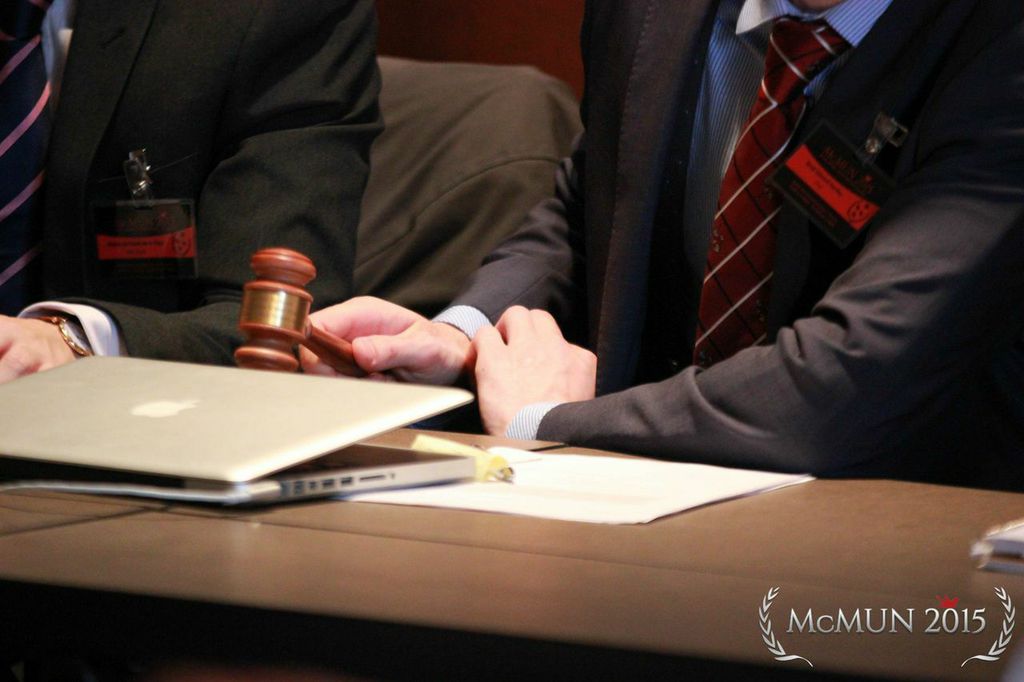On Education – the UNESCO Committee Session

McMUN kicked off its UNESCO Committee Session today at the Centre Sheraton Hotel. As an organization, UNESCO’s mandate is multifaceted, tackling education, multiculturalism and cultural protection, and science and technology. Accordingly, the 2015 conference focused on endangered languages, bioethics and universal primary education.
On account of globalization, 43% of the world’s 6000 languages are endangered. This represents not only the potential loss of a language, but also the disappearance of traditional knowledge and cultural heritage. With respect to bioethics, UNESCO hopes to evaluate the fields of cloning, genetic modification, and research ethics, aiming to implement ethical considerations into the industry as seamlessly as possible. On the topic of universal education, UNESCO addresses the quality of education, funding, languages taught, and accessibility of institutions. It was with these issues in mind that the 2015 Conference convened.
The Primary Speaker List included Indonesia, Israel, and Iraq. Each came up to the microphone representing a particular topic they felt was the most critical to discuss. Iraq was pro-education, and insisted that a lack of education is tied into cycles of poverty. Israel, however, preferred to move the agenda to bioethics. The Chair requested two countries to come up to discuss the relative merits and drawbacks of making education the focus of UNESCO’s funds. The Philippines encouraged an international focus on education to boost dwindling literacy rates and stagnated political development. Papa New Guinea emphasized access to education, asserting that children worldwide should have access to basic materials such as books, as well as learning spaces that are secure. Peru affirmed the importance of education but argued that the global community has already made substantial gains with such programs as “Let Us Learn”, and that there are more important issues at hand such as food security. India stated that enrollment in school, more so than the qualiity of educational programs, is the issue at hand, and that drug trade and human trafficking must be addressed to increase enrollment.
The Chair then held a vote over whether education would be the first topic discussed. 61 of 102 countries voted yes, and the motion passed. Many countries, such as Lebanon, Guatemala, Zimbabwe, and the U.S., discussed education and what they see as the fundamental barrier to achieving universal primary education in the world. The United States, unlike Peru, believed that current primary education institutions are insufficient. There needs to be transparency in government, and a renewed focus on gender discrimination and poverty, they argued. Economic incentives (including sanctions) and increased cooperation will lead to the proliferation of innovative and new ideas.
Russia disaggregated its vision of education into three aspects: social (regional and local institutions), economic (partnerships between more- and less-developed countries), and political (infrastructure). The Philippines also presented their proposal as three points: participation (enrollment and access), quality, and retention (incentives). Both countries invited other countries to further discuss these issues in an unmoderated caucus. Zimbabwe proposed a motion to discuss the elements of a strong education system, which was subsequently passed.
Sixteen countries discussed the elements of a strong education system during this moderated caucus. Israel brought up the common theme that rather than quantity, enrollment rates are of issue. Peru elaborated upon, offering the unconventional proposal that educators teach mothers; once families understand the importance of education, enrollment will increase. They emphasized that parents should be more involved in the learning process. Algeria and New Zealand focused not on family, but community. They proposed accommodating different cultures and ethnic groups, and integrating populations despite linguistic and cultural barriers. Finally, Ireland focused on access to education, and hoped to increase access to education in remote areas such as villages, which would ultimately increase employment.
All in all, UNESCO kicked off to a strong start. It started with the third topic in its agenda of education, and the many nuances and obstacles to achieving universal education were touched upon. A lack of education is tied into cycles of poverty, preventing political, social, and economic institutions from developing. Primarily, there are two perspectives on education – (1) that more programs need to be offered, for example in remote areas; and (2) enrollment, more than quality of programs, is the issue at hand and one must address human trafficking and drug trade, as well as involve parents in the educational process, in order to successfully implement change. The topic of education is also tied into the first topic in the agenda – endangered languages – since often times there exists linguistic and cultural barriers limiting children’s access to education. Endangered languages and ways in which to mitigate this will be explored in the next committee session.
